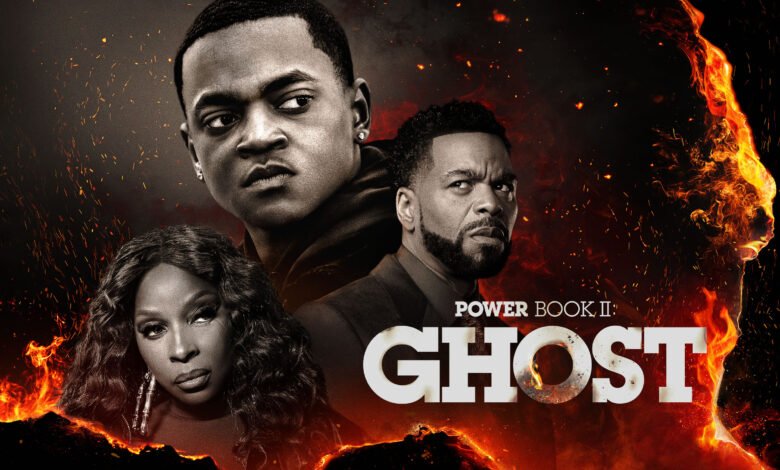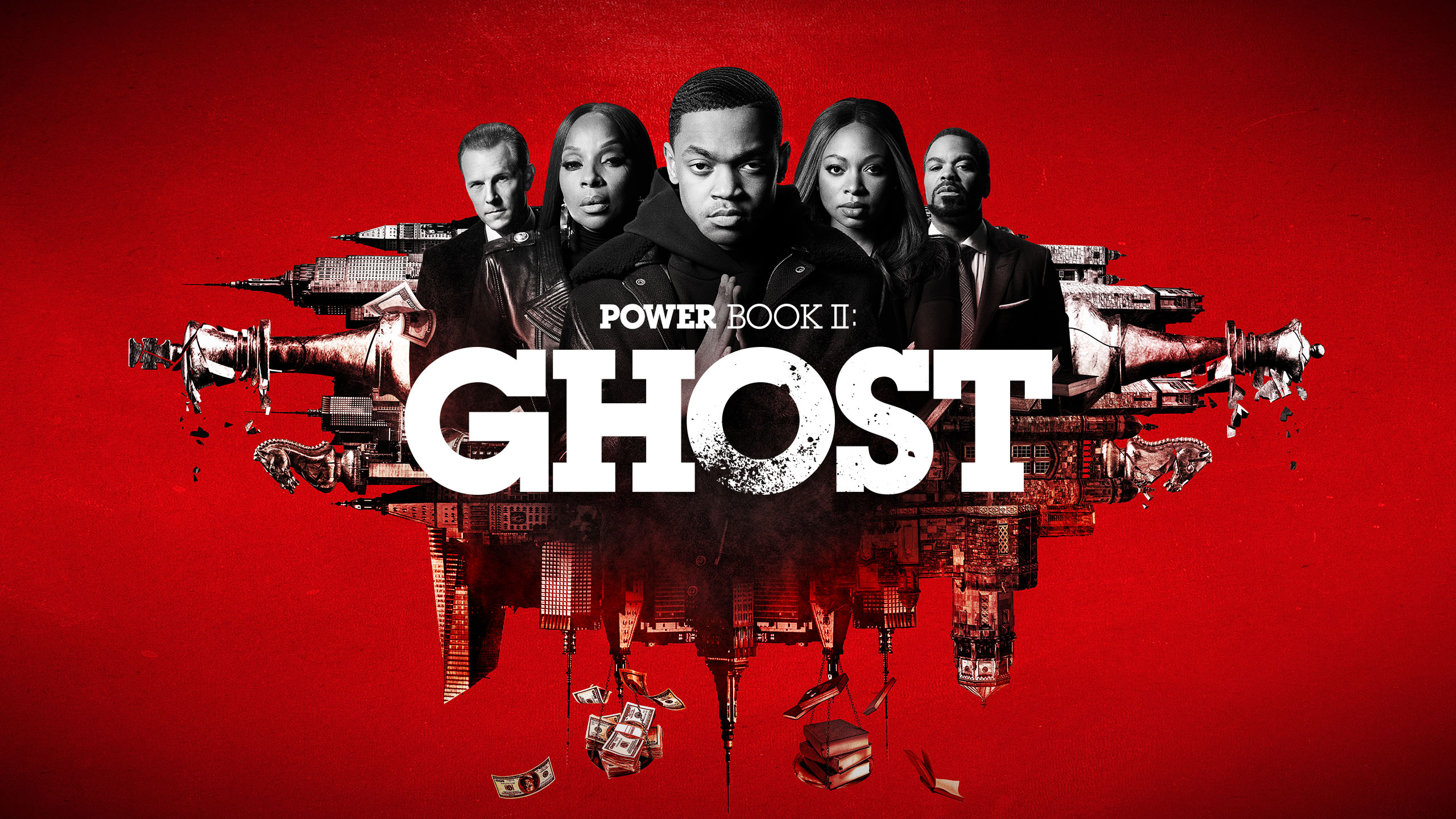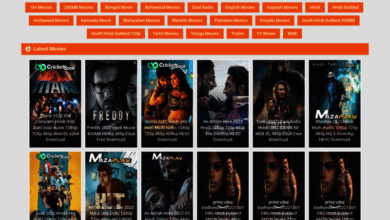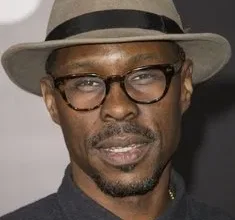Power Book II: Ghost” – A Deep Dive into the Drama, Power, and Legacy

Introduction: The Rise of a Sequel That Holds Its Own
When “Power” first aired on Starz, it quickly became a cultural phenomenon. The crime drama created by Courtney A. Kemp and executive produced by Curtis “50 Cent” Jackson offered a gritty, emotional, and thrilling portrayal of the double lives led by drug lords and those around them. After the original series wrapped up, fans were left wondering what could possibly follow a show that had redefined the modern crime drama. Enter Power Book II: Ghost—a bold, gripping continuation that dares to carve its own identity while carrying the legacy of its predecessor.
Unlike many spin-offs that fail to capture the spirit of the original, Power Book II steps up with a fresh narrative, led by Michael Rainey Jr. as Tariq St. Patrick. It offers a compelling look into a young man’s struggle to outrun his father’s shadow while navigating crime, academia, and family responsibility. It’s not just a follow-up—it’s a transformation.
In this article, we’ll break down the characters, the themes, and the storytelling mastery that makes Power Book II such a binge-worthy series. Whether you’re a die-hard “Power” fan or a newcomer looking for your next obsession, this article is your guide into the world of Power Book II.
The Story So Far: Tariq’s Double Life

Power Book II: Ghost picks up almost immediately after the events of the Power finale. James “Ghost” St. Patrick is dead, and his son, Tariq, is now the focal point. What makes Tariq such an interesting character is the complexity of his situation—he’s a college student at the prestigious Stansfield University, but he’s also entangled in the drug game, trying to earn money to get his mother, Tasha, out of jail.
This duality—education vs. criminality—is what fuels the heart of the show. Tariq’s life is a high-stakes balancing act. By day, he’s hustling between lectures and study sessions. By night, he’s slinging drugs through a secret operation he sets up with help from unlikely allies like Brayden Weston and Effie Morales.
What’s remarkable is how the show doesn’t shy away from showing Tariq’s moral struggle. He doesn’t necessarily want to be like his father, but he also doesn’t see any other way to survive. Each decision he makes pulls him further into a world he was born into but never chose. The storytelling is both emotionally intense and incredibly human.
Characters That Carry the Torch
One of the strongest aspects of Power Book II is its cast. While the original Power series had unforgettable characters, Book II builds a new generation that stands on its own while respecting the past.
Tariq St. Patrick (Michael Rainey Jr.)
Rainey’s portrayal of Tariq is impressive. He shows growth, vulnerability, and intelligence. Tariq is not just a teenager caught in a bad situation—he’s a strategist, a survivor, and a son trying to redefine his legacy. We see his inner turmoil, especially in scenes where he has to make life-or-death decisions or deal with emotional betrayals.
Monet Tejada (Mary J. Blige)
Enter Monet—a queenpin in her own right. Mary J. Blige brings raw intensity and grace to the character. Monet isn’t just a boss; she’s a mother, a wife, and a fierce protector of her family. Her dynamic with Tariq is central to the show’s plot. There’s tension, manipulation, and mutual dependence.
Brayden Weston (Gianni Paolo)
Brayden brings a contrasting energy to Tariq. He’s loyal, ambitious, and surprisingly street-smart for a privileged kid. Their partnership isn’t always smooth, but it mirrors Ghost and Tommy’s dynamic in Power, offering a nostalgic yet fresh take on criminal brotherhood.
These aren’t the only notable characters. From Davis MacLean (Method Man) as the slick defense attorney to Cooper Saxe, the morally ambiguous ex-prosecutor, the show gives depth to almost every person on screen. The writers make sure every character feels like they matter—and they do.
Themes That Hit Hard: Power, Family, and Identity
What makes Power Book II more than just a crime series is its ability to explore big themes without sacrificing entertainment. At its core, it’s a story about power—who has it, who wants it, and what people are willing to do to get it.
Power and Control
The show explores different kinds of power: street power, legal power, financial power, and even academic influence. Tariq’s world is full of people trying to control outcomes. Whether it’s Monet trying to keep her cartel strong or Davis MacLean gaming the justice system, every character is chasing control in their own arena.
Family Dynamics
Family plays a huge role. Tariq is essentially trying to save what’s left of his family while becoming entangled in Monet’s. Loyalty is tested constantly. Can you trust family if they’re also your competition? The Tejada family dynamic—with kids like Cane, Diana, and Dru—is a chessboard of betrayals, secrets, and shifting alliances.
Identity and Growth
Tariq’s journey is a coming-of-age tale in the most unconventional way. He’s not just learning about the world—he’s creating his identity in opposition to his father’s. The show smartly asks: Is Tariq becoming Ghost, or is he breaking the cycle?
What Sets Power Book II Apart?
There are plenty of crime dramas out there, but Power Book II stands out for a few reasons.
It’s rooted in realism.
Despite the dramatics, the show touches on real-world issues—systemic racism, the criminal justice system, the pressure of academia, and economic disparity. These elements make the story feel grounded and relatable.
It respects its origin.
The original Power series cast a long shadow. Yet Book II doesn’t feel like a reboot or a desperate attempt to cash in. It feels like a natural continuation. The characters evolve, the stakes are fresh, and the world expands in a meaningful way.
Diversity and depth.
This is a show where people of color are at the center—not just as characters, but as fully fleshed-out human beings with nuance. It’s rare in TV to see this kind of complexity and representation done right.
Audience Reception and Cultural Impact
Power Book II has found a loyal fanbase, and it’s easy to see why. It’s not just about drama and crime—it’s about emotion, intellect, and survival. Fans often praise the show for its strong writing, fast-paced plot twists, and stellar performances. It’s also become a talking point on social media, with every new episode spawning Twitter threads, memes, and fan theories.
Its cultural impact is especially noticeable in how it reflects the struggles of young Black men trying to carve out a future in a world stacked against them. Tariq may be fictional, but his dilemmas echo the experiences of many.
What’s Next for the Franchise?
With multiple spin-offs in the Power universe (Power Book III: Raising Kanan, Power Book IV: Force, etc.), the franchise is rapidly becoming a mini-empire. But Power Book II: Ghost remains the heart of this expansion. Each season has raised the stakes, and with every new twist, fans are left guessing what Tariq’s next move will be.
Will he finally escape the game? Or is he destined to become a kingpin like his father?
Only time—and a few more seasons—will tell.
Conclusion: Power, Redefined
Power Book II: Ghost is more than just a spin-off. It’s a character study, a social commentary, and a thrilling drama rolled into one. It proves that a sequel can evolve the narrative while honoring its roots. With strong performances, sharp writing, and relevant themes, it stands tall in the landscape of modern television.
If you haven’t yet dived into this electrifying series, now is the time. And if you’re already a fan, buckle up—because in the world of Power, ghosts never really disappear. They just evolve.



